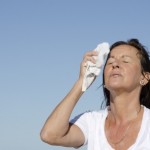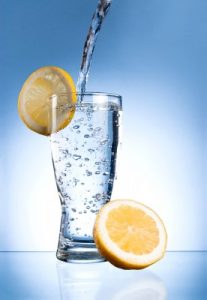
Most of us look forward to spring and summer. But for many people, the beauty of saying goodbye to winter comes with a heavy price to pay: seasonal allergies.
Warmer weather and dry winds kick up pollen, ragweed, and a host of other common allergens.
If you suffer from seasonal allergies, you are one of roughly 45 million Americans who suffer from hay fever or recurrent pollen allergies. That means at any given moment, one out of every six people in America may be sneezy, itchy, and stuffed up — or sedated by the drugs that suppress those symptoms.
A team of researches from Finland found that diet might play a role in the increased incidence of allergies.
Allergies and Your Diet

Their study found that children who eventually developed allergies ate less butter and more margarine compared with children who did not develop allergies. The allergic children also tended to eat less fish, although this dietary difference was less significant.
The study is not the first to suggest that certain types of fatty acids play a role in the onset of allergic reactions. Polyunsaturated fats, like those in margarine, are now suspected to promote the formation of prostaglandin E2, a substance that promotes inflammation and causes the immune system to release a protein that triggers allergic reactions.
Their results support the theory that the quality of fat consumed in your diet is important for the development of allergies in children. So, no more trips to the donut shop or fast food breakfast take-out for you or the kids, especially during allergy season.
So it appears that processed and packaged foods filled with junk fats, food chemicals and preservatives may worsen allergy symptoms.
You may notice less sneezing, headaches, and watery eyes if you adjust your diet during allergy season,

Tips To Reduce Allergies
Here are some tips to reduce allergy symptoms:
- Remove sugars and foods that turn to sugar quickly;
- Consume less milk and creamy dairy products;
- Don’t skip meals. Skipping meals is one of the worst things you can do for your body. When you’re hungry, your blood sugar drops, stressing your adrenal glands and triggering your sympathetic nervous system. This causes light-headedness, cravings, anxiety and fatigue, AND an increase in allergy symptoms. So, eat steadily throughout the day;
- Start each morning with a good breakfast and “graze” healthfully every two to four hours so your blood sugar won’t take any sharp dips and you’ll feel more rested and energetic;
- Remember my 75/25 Eating Plan and eat more raw uncooked foods. Raw eggs may take some getting used to, but they are an inexpensive way to increase the amount of uncooked protein and fat in your diet. And forget the myths of their great risk: the risk of salmonella from raw eggs is only 1 in 30,000, and even that risk can be greatly avoided by carefully examining the eggs prior to eating them. Put them in a smoothie;
- Pay off your sleep debt. During sleep your adrenal glands are restored and repaired. Unfortunately, most of us are on the go, and end up getting less sleep than we need, night after night. The result – your adrenal glands stay depleted and your immune system stressed;
- Avoid toxic chemicals. A variety of toxins in foods and the environment contribute to a heightened adrenal response and stress, which in turn, increases allergy symptoms;
- Dust-proof your house and perhaps install an air purifier. Look for one that contains a HEPA filter to remove even the smallest of allergens;
- Avoid animal dander is not always possible if you have indoor pets, but make your bedroom an animal-free zone;

Avoid animal dander. - Do outdoor activities in the morning. Pollen levels tend to be higher in the afternoon and evening;
- Have your lawn mowed often. It will help control the pollen in the air around your home;
- Drink two quarts of clean water daily and three quarts during allergy season. When you’re inadequately hydrated, your body releases histamine (the chemical that constricts the airways and causes allergy symptoms) as a way of preventing water loss through your lungs. The reverse is also true: Water acts as a natural antihistamine. Simply drinking plenty of pure, filtered water will help reduce the release of histamine and lessen your allergy symptoms;

Drink 3 quarts of water a day during allergy season. - Take acidophilus/probiotics. A study conducted at the University of California in Davis found that people who ate yogurt containing live L. acidophilus and other bacterial cultures every day had significantly less hay fever. The beneficial bacteria in yogurt boost the production of gamma interferon, a powerful immune protein that fights off allergic reactions and infections. Eat 1.5 to 2 cups of yogurt a day for the greatest benefit. (Make sure you don’t get sugar-free yogurt by mistake.) Or take an acidophilus supplement each morning on an empty stomach. Start now — it takes about three months to build up enough cultures;
- Get natural relief from nutritional supplements. Certain vitamins, minerals, and herbs act as natural antihistamines and help keep inflammation in check. Check with your nutritionist for specific recommendations.
Stay as chemical free as possible, eat whole foods with natural oils at every meal, drink plenty of water, and keep your vitamin supplements going during allergy season, and enjoy this beautiful season of sun and fun.
_____________
Join my Private Membership Program
Gain access to all of my online programs, ongoing support, monthly Q&A, and more by joining my Private Inner Circle Membership Program. I look forward to supporting you on your journey to alternative health and wellness.
_____________
Disclaimer: This article is for informational purposes only, and is educational in nature. The FDA may not have evaluated some of the statements. This article is not intended to diagnose, treat, cure, or prevent any disease. Please discuss with your own, qualified health care provider before adding supplements or making any changes to your dietary program.
Before taking vitamins, consult your doctor; pre-existing medical conditions or medications you are taking can affect how your body responds to multivitamins.